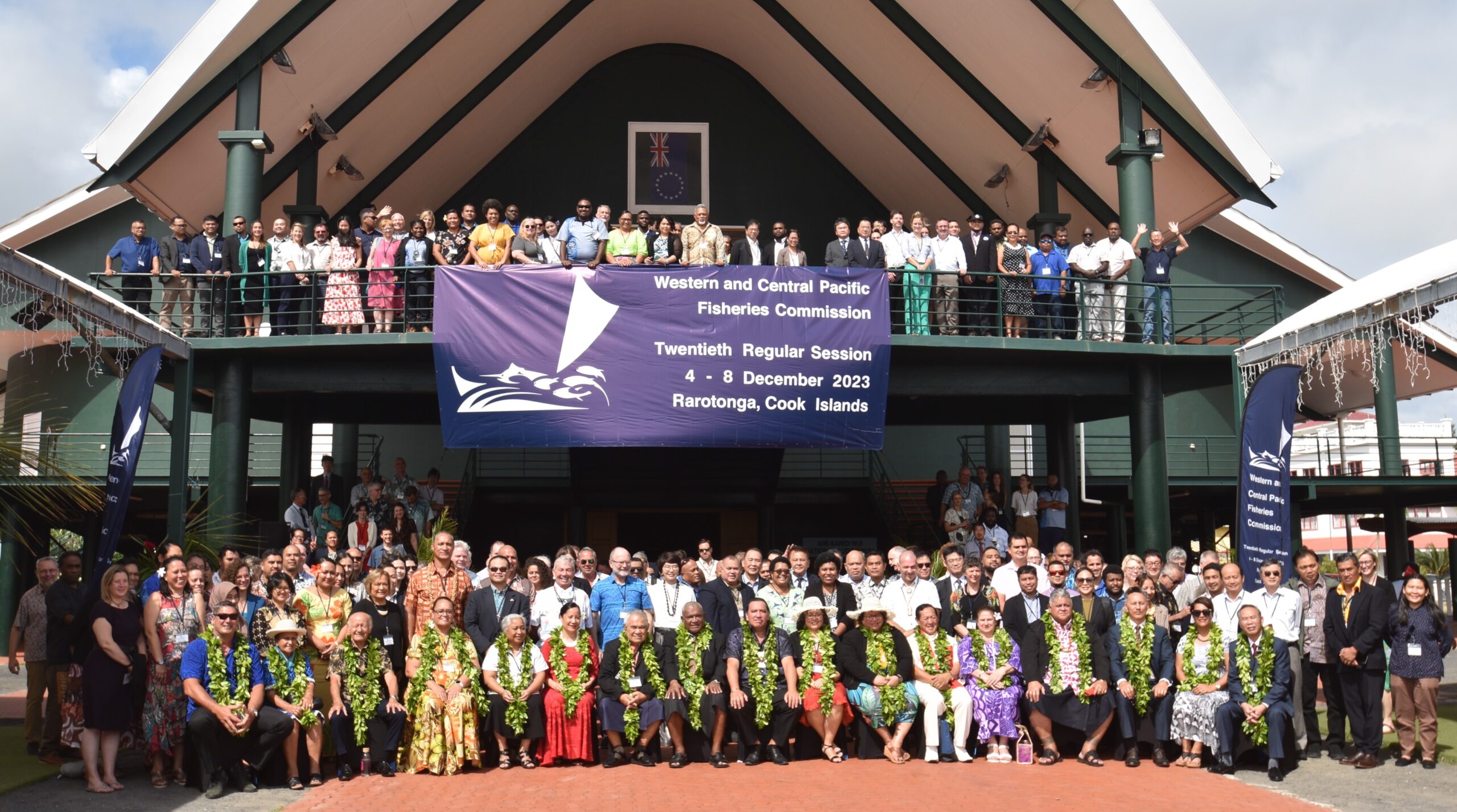Fisheries commission meeting ends today, decisions on key proposals expected
Friday 8 December 2023 | Written by Rashneel Kumar | Published in Economy, National, Pacific Islands, Regional

The opening ceremony of the 20th Western and Central Pacific Fisheries Commission (WCPFC20), family photo of all delegates at Te Are Kariori (National Auditorium). MELINA ETCHES/23120410
The 20th Western and Central Pacific Fisheries Commission (WCPFC20) concludes today at the National Auditorium, with decisions expected on several key proposals.
One of the proposals introduced on the first day of the meeting concerns the renegotiation of the tropical tuna measure, which guides fishing controls for bigeye, skipjack, and yellowfin tuna. The current measure expires at the end of this year, and the Forum Fisheries Agency (FFA) proposes restricting purse seine effort on the high seas as part of its review.
Glen Holmes, representing the observer organisation Pew Charitable Trusts, advocated for a management procedure for Pacific skipjack tuna, which accounts for one-third of the world’s tuna catch and boasts a final-point-of-sale value of USD $9.65 billion.
Last year, the WCPFC adopted a modernised management plan for the Pacific skipjack tuna fishery. However, Holmes noted that the adopted management procedures lacked implementation details. He hopes that will be addressed by the meeting’s conclusion tonight.
“Last week, just before the Commission started, FFA put forward an updated proposal that effectively links the tropical tuna measure to the skipjack measure,” Holmes explained to Cook Islands News. “Their proposal states that if catches under the tropical tuna measure exceed those allowed under the skipjack management procedure, the Commission needs to come back and work out a way to keep those catch levels within the bounds of the management procedure.”
Holmes emphasised the importance of managing skipjack tuna stocks sustainably, as they represent a significant revenue source for many Pacific Island nations.
He highlighted the healthy status of all tuna stocks in the region and stressed the importance of implementing measures to ensure their continued sustainability.
“The tropical tuna measure, before the FFA proposal, had a disconnect from the basis that the management procedure was built on and the proposal put forward now basically bridges the gap between the two so that we can have sustainable management going forward,” Holmes stated.
“It will essentially include checks and balances to make sure that things don’t go off track and if they do start to go off track, the Commission comes back to the table, figures out what the problem is and solves it.”














































